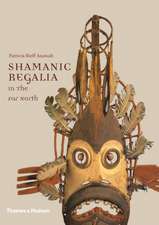Bad Habits – Drinking, Smoking, Taking Drugs, Gambling, Sexual Misbehavior and Swearing in American History: THE AMERICAN SOCIAL EXPERIENCE
Autor John C. Burnhamen Limba Engleză Paperback – 31 ian 1994
Preț: 249.73 lei
Nou
Puncte Express: 375
Preț estimativ în valută:
47.78€ • 50.03$ • 39.64£
47.78€ • 50.03$ • 39.64£
Carte tipărită la comandă
Livrare economică 10-24 aprilie
Preluare comenzi: 021 569.72.76
Specificații
ISBN-13: 9780814712245
ISBN-10: 081471224X
Pagini: 378
Ilustrații: 34 photographs, 13 black and white drawings
Dimensiuni: 163 x 233 x 27 mm
Greutate: 0.6 kg
Ediția:Revised
Editura: MI – New York University
Seria THE AMERICAN SOCIAL EXPERIENCE
ISBN-10: 081471224X
Pagini: 378
Ilustrații: 34 photographs, 13 black and white drawings
Dimensiuni: 163 x 233 x 27 mm
Greutate: 0.6 kg
Ediția:Revised
Editura: MI – New York University
Seria THE AMERICAN SOCIAL EXPERIENCE
Recenzii
"Burnham, one of the first modern scholars to bring a new point of view to the Prohibition era (i.e. that Prohibition worked) now addresses a constellation of American `bad habits' with the same fresh insight. Readers will be fascinated by well-documented and illustrated information about the genesis of habits such as cigarette smoking, taking drugs, drinking, swearing, and `swinging.' Burnham breaks from the traditional `history of reform' by concentrating not on reformers but on the proponents of misbehavior. A combination of economic greed on the part of many large corporations and a spirit of rebelliousness, enormously stimulated by the media, opened the way for the nihilistic advocacy of bad habits."
Choice "A provocative, refreshing, and not-to-be-ignored account of America's `rituals of transgression' by one of the foremost historians of American culture writing today. Burnham turns the conventional history of America's anti-vice crusades on its head in this fascinating account of how the bad habits of the 19th-century Victorian underworld became the `minor-vice industrial complex' of the 20th century. Burnham shows how powerful economic interests, mass media advertising, and the entertainment industry worked to make bad habits into big business. Bad Habits is an eye-opening, disturbing, and timely social history of our national vices."
Nancy J. Tomes
SUNY, Stony Brook
"Burnham, one of the first modern scholars to bring a new point of view to the Prohibition era (i.e. that Prohibition worked) now addresses a constellation of American 'bad habits' with the same fresh insight. Readers will be fascinated by well-documented and illustrated information about the genesis of habits such as cigarette smoking, taking drugs, drinking, swearing, and 'swinging.' Burnham breaks from the traditional 'history of reform' by concentrating not on reformers but on the proponents of misbehavior. A combination of economic greed on the part of many large corporations and a spirit of rebelliousness, enormously stimulated by the media, opened the way for the nihilistic advocacy of bad habits." --Choice "A provocative, refreshing, and not-to-be-ignored account of America's 'rituals of transgression' by one of the foremost historians of American culture writing today. Burnham turns the conventional history of America's anti-vice crusades on its head in this fascinating account of how the bad habits of the 19th-century Victorian underworld became the 'minor-vice industrial complex' of the 20th century. Burnham shows how powerful economic interests, mass media advertising, and the entertainment industry worked to make bad habits into big business. Bad Habits is an eye-opening, disturbing, and timely social history of our national vices." --Nancy J. Tomes SUNY, Stony Brook
Choice "A provocative, refreshing, and not-to-be-ignored account of America's `rituals of transgression' by one of the foremost historians of American culture writing today. Burnham turns the conventional history of America's anti-vice crusades on its head in this fascinating account of how the bad habits of the 19th-century Victorian underworld became the `minor-vice industrial complex' of the 20th century. Burnham shows how powerful economic interests, mass media advertising, and the entertainment industry worked to make bad habits into big business. Bad Habits is an eye-opening, disturbing, and timely social history of our national vices."
Nancy J. Tomes
SUNY, Stony Brook
"Burnham, one of the first modern scholars to bring a new point of view to the Prohibition era (i.e. that Prohibition worked) now addresses a constellation of American 'bad habits' with the same fresh insight. Readers will be fascinated by well-documented and illustrated information about the genesis of habits such as cigarette smoking, taking drugs, drinking, swearing, and 'swinging.' Burnham breaks from the traditional 'history of reform' by concentrating not on reformers but on the proponents of misbehavior. A combination of economic greed on the part of many large corporations and a spirit of rebelliousness, enormously stimulated by the media, opened the way for the nihilistic advocacy of bad habits." --Choice "A provocative, refreshing, and not-to-be-ignored account of America's 'rituals of transgression' by one of the foremost historians of American culture writing today. Burnham turns the conventional history of America's anti-vice crusades on its head in this fascinating account of how the bad habits of the 19th-century Victorian underworld became the 'minor-vice industrial complex' of the 20th century. Burnham shows how powerful economic interests, mass media advertising, and the entertainment industry worked to make bad habits into big business. Bad Habits is an eye-opening, disturbing, and timely social history of our national vices." --Nancy J. Tomes SUNY, Stony Brook
Textul de pe ultima copertă
The vast majority of Americans have, at one point or another, gotten drunk, smoked, dabbled with drugs, gambled, sworn, or engaged in adultery. During the 1800s, "respectable" people struggled to control these behaviors, labeling them "bad" and the people who indulged in them unrespectable. In the twentieth century, these minor vices were transformed into a societal complex of enormous and pervasive influence. Yet the general belief persists that these activities remain merely harmless "bad habits", individual transgressions more than social problems. Not so, argues distinguished historian John C. Burnham in this pioneering study. In Bad Habits, Burnham traces the growth of a veritable minor vice-industrial complex illustrating the special heritage shared by these vices. As this vice complex grew, activities that might have been harmless, natural, and sociable fun resulted in fundamental social change. When Burnham set out to explore the influence of these bad habits on American society, he sought to discover why so many "good" people engaged in activities that many, including they themselves, considered "bad". What he found, however, was a coalition of economic and social interests in which the single minded quest for profit allied with the values of the Victorian saloon underworld and bohemian rebelliousness. This combination radically inverted common American standards of personal conduct. Bad Habits, then, describes, in words and pictures how more and more Americans learned to value hedonism and self-gratification - to smoke and swear during World War I, to admire cabaret night life, and to reject schoolmarmish standards in the age of Prohibition. Tracing the evolution of each ofthe bad habits, Burnham tells how liquor control boards encouraged the consumption of alcohol; how alcoholic beverage producers got their workers deferred from the draft during World War II; how convenience stores and accounting firms pursued profits by pushing legalized gambling; how "swinging" Playboy bankrolled a drug advocacy group; how advertising and television made the Marlboro man a national hero; how drug paraphernalia were promoted by national advertisers; how a practical joker/drug addict caused a shortage of kitty litter on Long Island; and how the evolution of an entire sex therapy industry helped turn sexual experience into a new kind of commodity. Altogether, a lot of people made a lot of money. But what, the author asks, did these changes cost American society? This illustrated tour de force by one of the most distinctive and important voices in social history reveals John C. Burnham at his provocative and controversial best.















